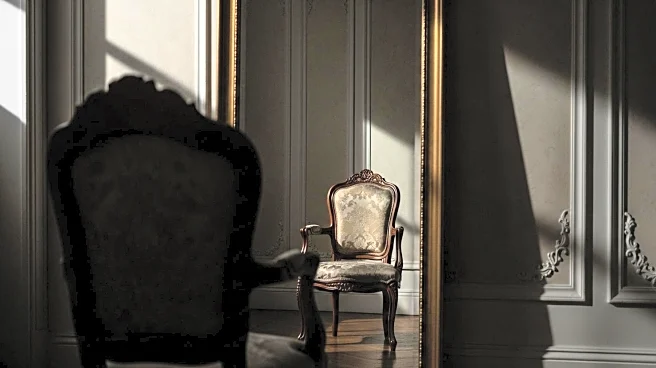What's Happening?
Olivia Cooke stars in the new series 'The Girlfriend,' directed by Robin Wright. Cooke plays a character named Cherry, who is described as having unashamed ambition and a quick temper. The role allows Cooke to explore emotions like anger, which she finds challenging to access in real life. The series offers a streamlined production experience due to Wright's dual role as both director and co-star, creating a symbiotic working environment. Cooke appreciates the opportunity to portray a character who navigates well-connected spaces different from her own class background.
Why It's Important?
The series 'The Girlfriend' highlights the evolving roles available to women in television, allowing actresses like Olivia Cooke to explore complex emotions and characters. This reflects broader societal changes in how women's anger and ambition are perceived and portrayed. The collaboration between Cooke and Robin Wright also underscores the growing trend of women taking on multifaceted roles in the entertainment industry, both in front of and behind the camera. This can inspire more inclusive storytelling and diverse character representation in media.
What's Next?
As 'The Girlfriend' gains viewership, it may influence future television projects to embrace more nuanced female characters. The success of the series could encourage networks to invest in similar projects that challenge traditional gender roles and explore complex emotional landscapes. Additionally, Robin Wright's involvement as a director and actress may pave the way for more women to take on leadership roles in the industry, potentially leading to a shift in how stories are told and who gets to tell them.
Beyond the Headlines
The portrayal of anger and ambition in 'The Girlfriend' could contribute to ongoing cultural conversations about gender norms and emotional expression. By depicting a female character who is unapologetically ambitious and quick-tempered, the series challenges stereotypes and encourages viewers to reconsider their perceptions of women's emotions. This could have a lasting impact on how female characters are written and perceived in media, promoting a more authentic and diverse representation of women's experiences.










